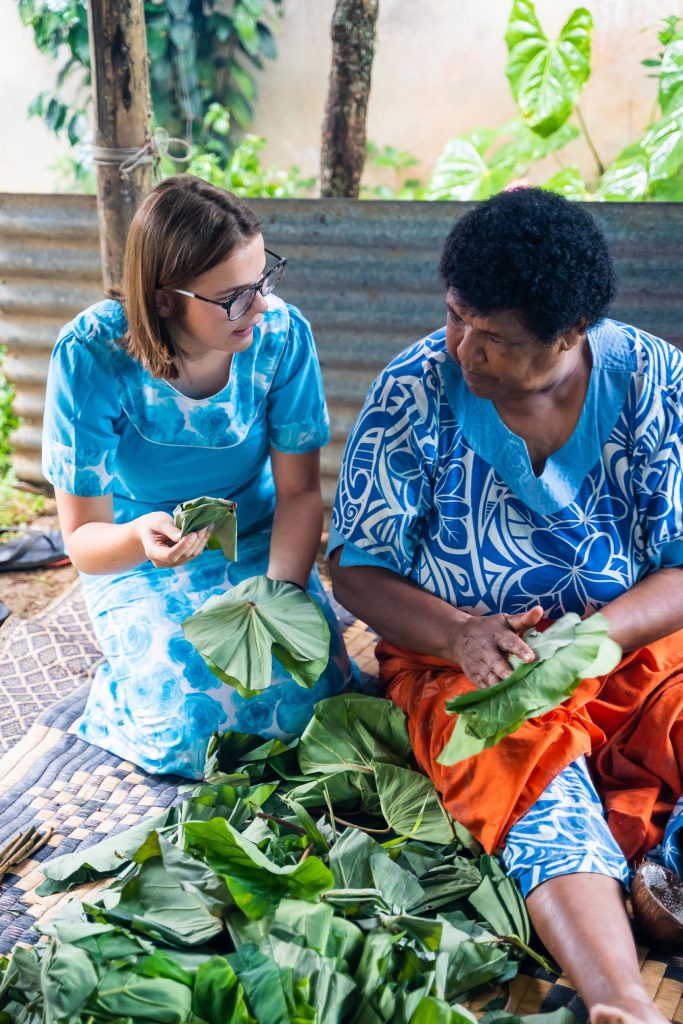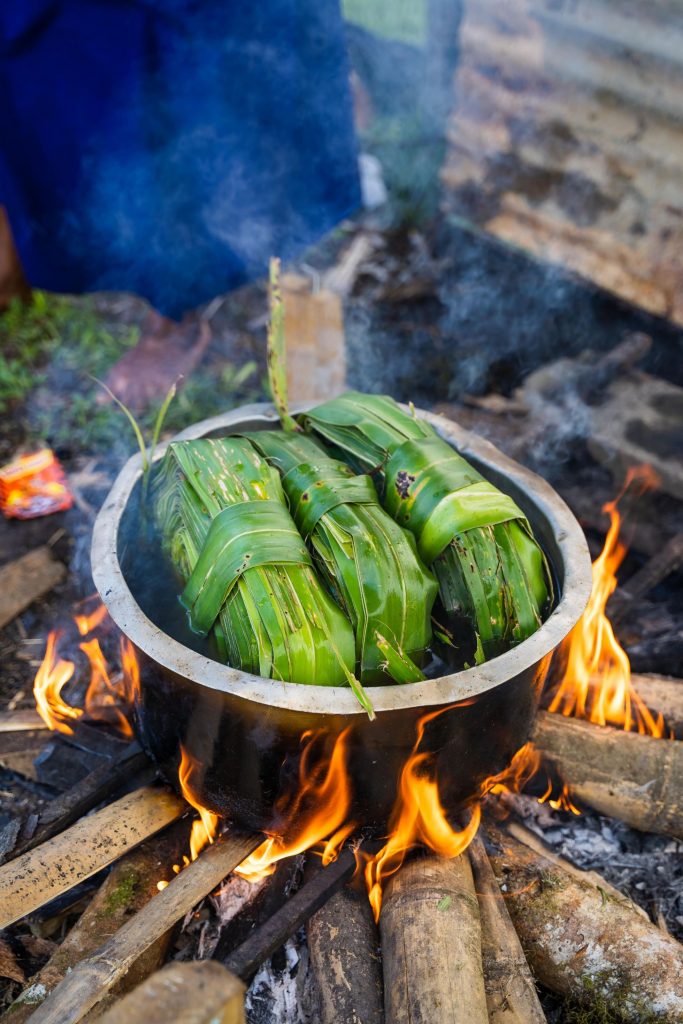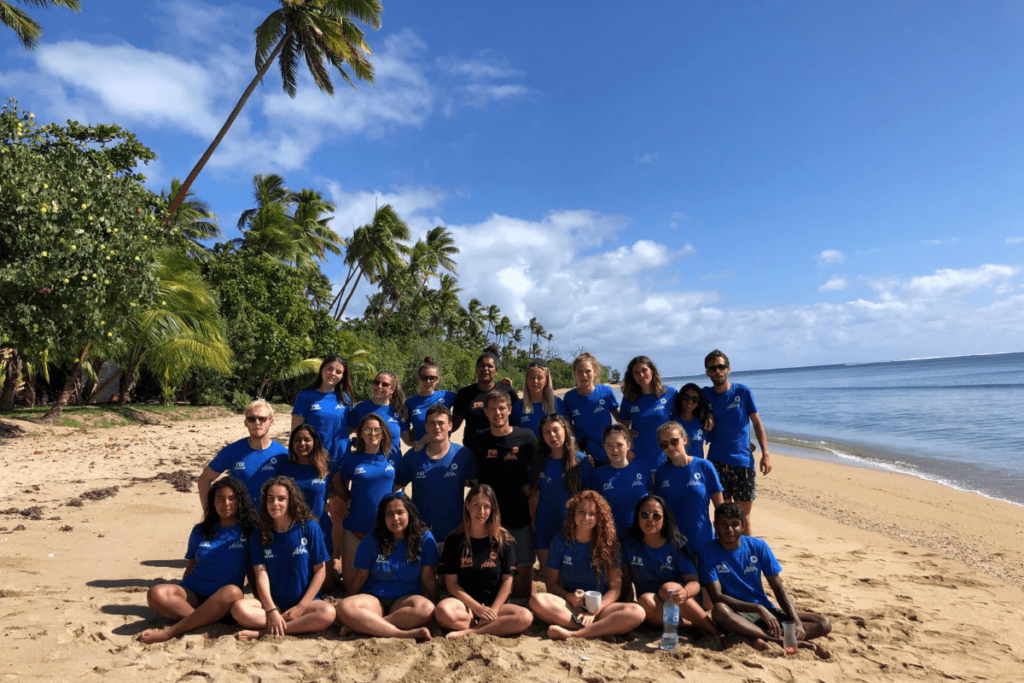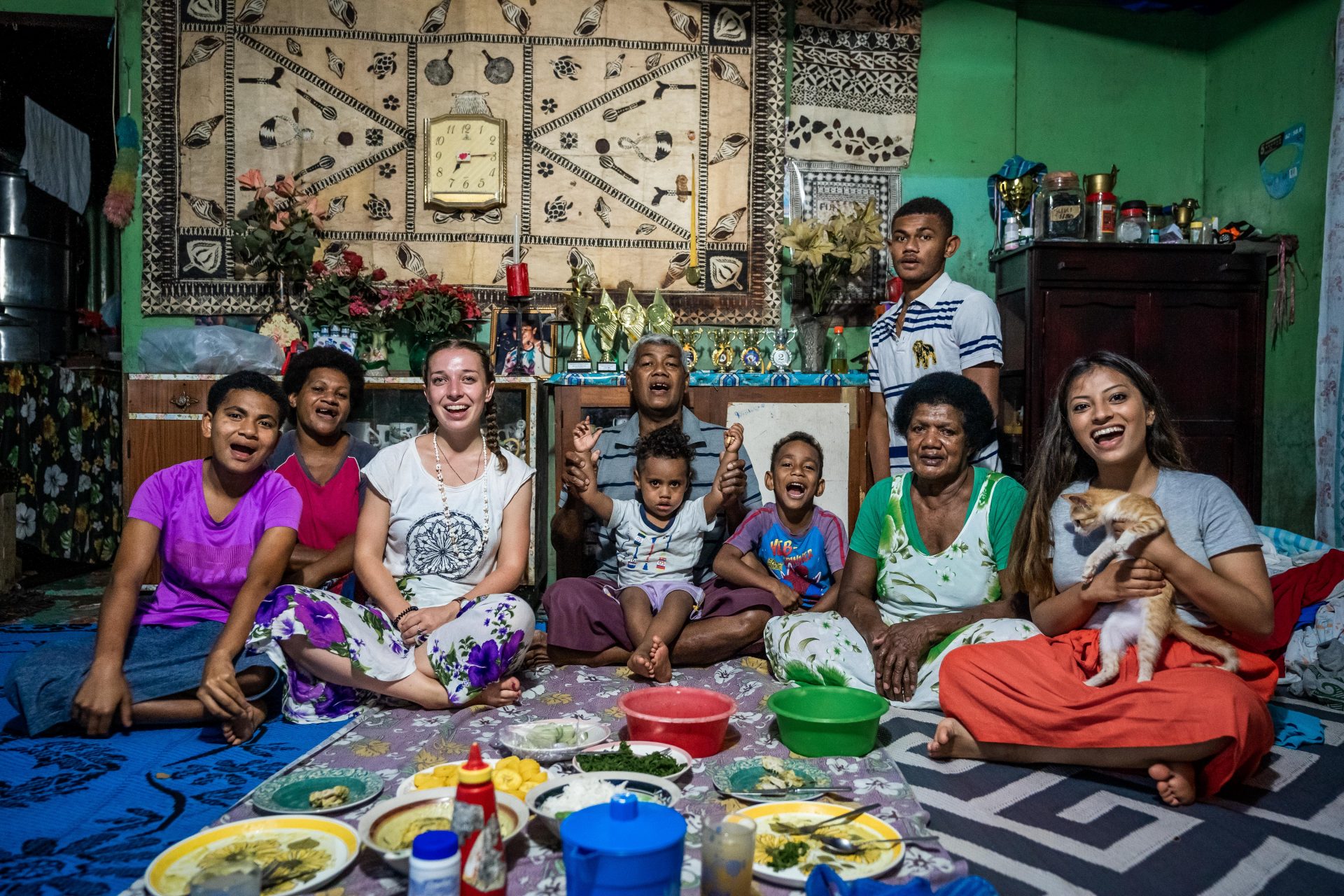Health & Safety
We take a highly personal approach to your health, safety and support. By the very nature of our projects, we guide young people to rural locations to live in very back-to-basic conditions. Fiji is not somewhere we operate, it’s our home. You’ll have the benefit of one of the most respected organisations in the country with an annual staff team of over 40+ there to offer you guidance. Our knowledge and understanding of Fijian lifestyle, culture and logistics is unparalleled.
The links below have PDF of the latest policy documentation for projects in Fiji. Please read the documents and contact Think Pacific on 0113 335 9919 or email info@thinkpacific.com if there are any areas you would like further clarification. This documents may be useful for completing any related university preparation also.
Prevention is better than cure…
During your project Think Pacific staff are there to help you with the challenges and unique experiences of project. We ask you to take a pro-active approach to your health and safety also, including taking responsibility for your own health and wellbeing on project. This page advises steps you can take to ensure the best possible project for all.
When visiting rural villages, expect sanitation facilities to be very basic and your risk of ilness is often far greater than it would be at home. We ask you to prepare for these conditions, take a proactive approach to your health and follow simple but important measures to stay safe.
Follow all pre-departure advice
Ensure you have read and follow carefully all the advice included within this portal, in particular:
- Ensure you complete all modules of this Portal before departure.
- Read and understand the COVID Process for Fiji and understand your requirements
- Make sure you have the vaccinations for Fiji (We deem Hepatitis A, Typhoid and Covid as essential)
- Purchase all recommended first aid items.
- Get Travel Insurance and take time to read and understand your policy inclusions.
- Advise Think Pacific fully about any existing medical condition, including mental health
Advise Think Pacific of any pre-existing medical conditions
- Please be proactive and advise our staff if you have any health concerns at all.
- If you have any pre-existing medical conditions it is vital that you contact our team to chat through in confidence before you depart and also list this on any booking form or pre-departure form or send to us in writing.
- If you suffer any health problems before departure or you are prescribed any medication prior to leaving, it is essential that you fully advise Think Pacific and your insurance company.
- For any prescribed medication ensure you have a letter signed by your doctor identifying and explaining what the medication is and why it is needed.
Take extra care in the tropics
- Experience shows it’s the small things that cause some of the biggest health issues on project!
- Due to the high heat and humidity of the tropics, simple cuts, scrapes and mosquito bites can become infected very quickly and take a long time to heal.
- Take extra care with regards to sanitation and looking after cuts and bites.
- For any cut – immediately clean, apply antiseptic and cover the area.
- Continue to keep cuts clean – and do not swim in the sea or bathe in the river with cuts.
- Bites can easily become infected and cause itching and discomfort. Use mosquito sprays liberally and wear long sleeved clothes to bed. There is no malaria in Fiji but mosquito bites can naturally cause discomfort.
Keep hydrated
- Dehydration can be a major cause of illness in Fiji
- Drink regularly throughout the day
- Bring a good quality water bottle and carry it with you during the day.
- Being dehydrated is the number 1 major cause of stomach infections and diarrhoea during our projects.
- Thirst is a sign of dehydration; don’t wait for it to happen!
Sanitation & Keeping clean
- Sanitation facilities can be very poor, especially in rural areas
- Ensure that you keep yourself clean regularly, even with limited shower or bathing faciliites.
- Take sanitising hand gel for use before meals
- Wash your hands regularly, especially after touching foreign plants
- Clean and cover any cut or scrape immediately
Take care in the sun
- Avoid being out in sun for prolonged periods, especially midday heat
- Use a high-factor sun cream (factor 20 or above)
- Keep covered up during the day
- Wear loose fitting clothes that cover the shoulders
Menstrual advice on project
Read and follow our code of conduct
- If you have any questions or there is anything you don’t understand, always ask our leaders.
- Behave respectfully and follow our Code of Conduct at all times.
- Don’t openly display money or leave this lying around the community.
- Take as little valuable items to the village as possible
- You are not permitted to drink alcohol within any Fijian village. At the resorts, only ever drink alcohol in moderation
- Drugs will not be tolerated.
Emergency contact numbers…
Next of kin can contact our main number 0113 335 9919 or email Info@thinkpacific.com during office hours whilst you are away
We also operate an ‘out of hours’ phone number, which next of kin can use to contact Think Pacific in an emergency.
Think Pacific Emergency phone number: 0113 335 9922
Be aware of potential medical costs
Please note that Think Pacific can arrange transport for you to see a medical professional, however, any costs associated with transport to see a doctor or any medical costs themselves must be paid by you locally in Fiji and are not part of the project fee.
Insurance often works on a ‘pay and claim basis’. Therefore you must ensure that you have adequate reserve money to pay for any hospital treatment, keep the receipts and you can then submit your claim to be reimbursed by your insurance company.
Be mindful of risks
Think Pacific undertakes thorough risk assessments for all our expeditions, which are updated prior to each individual project through assessment visits by our Fiji based team. We encourage you to play an active part in assessing potential risks and understanding why prevention measures are taken.
What is a ‘PPP’?
Every week during the project you will have a PPP. It stands for Personal Project Planning. This is a scheduled one-to-one meeting with one of your expedition leaders. This is time to discuss your role in the village and for us to help you to get the most from your experience. PPP’s are a great chance for you to speak in confidence about anything that may be troubling you as you adjust to life in the Fijian community. Please don’t ever be shy in advising us of any concerns, especially with regards to your health and we can offer assistance to support you.
Top tips…
- Be honest with your Project Leaders about your health
- Clean & Cover all cuts and scrapes.
- Drink lots of water & purify water.
- Be mindful of yours and others mental health – project life can have its own, different challenges for everyone.
- Read our mental health guide
- Bring a comprehensive first aid kit
- Ensure you have adequate insurance
- Insurance is usually ‘pay and claim process’ – ensure you have reserve funds any emergency medical expense.
- Get your jabs for Fiji early
- Stay up to date with latest COVID guidelines
To Give You Some Background To Diet In Fiji…
Typical Fijian food
Food in a Fijian village is very carbohydrate heavy, and the central bulk of a Fijian diet is made up of root crops including Dalo and Cassava. Rice forms a basis for many meals also. Fijian’s eat lots of fish and most meals will consist of fresh fish, local green vegetables and rice. A typical Fijian meal could be cooked in coconut, chilli or lime. There are a lot of influences from Indian and Chinese cuisines within Fiji also, so expect meals such as curry and chop suey. Common breakfast in Fiji may consist of bread, roti, Fijian pancakes and fruits such as banana, coconut and papaya.
Fijians commonly also add food such as tinned tuna or corned beef and noodles. Many participants love the Fijian diet, the generous portions provided and the communal way of eating each meal together as a special time.. However the diet can post issues for some.
Meals may be repetitive, heavy and basic
There is limited dairy produce, so few eggs, milk or cheese consumed. There is often limited fruit in the villages too, which students find surprising, but this is very much dictated on seasons, so it is a good idea to supplement your diet with multivitamin tablets. Please be prepared that there is not a great variety of food, which means meals can be repetitive, heavy and basic. However, Fijians will often make several dishes, and eat together with many different family members all sitting on the floor enjoying communal meals. Consequently, there are often different foods at each meal to try and this helps to find food you enjoy and eat more of. More commonly today, Fijians in rural communities will fry their food. However, this is a good example of how we can support by suggesting that food is boiled instead.
Cultural considerations…
It’s always important to keep in mind the cultural background to food. The villagers work incredibly hard to provide food, often waking at 4pm daily to farm or fish or prepare for the whole community or travelling miles by bus or truck to markets. With no shops nearby and families largely reliant on subsistence, the local people go to huge efforts to provide food for their families and hosts. Because of this cultural difference, we are naturally so conscious and considerate to the community, whilst balancing the medical needs and dietary requirements we may have as guests. We encourage everyone to try all the different foods available and be mindful and humble of the cultural difference. We also come with a mindset to treat food simply as fuel to ensure we are healthy and nourished to achieve the project aims.
We do understand food can pose issues with specific dietary and medical needs, which is why it is important to chat ahead of going to Fiji. If you feel you may take time to adjust to the basic diet, you may wish to bring energy bars (as example) from home to supplement your diet in the first couple of days and we strongly advise you to chat through any challenges you are facing with your Leaders on project.



Vegan & vegetarian diets
- We have had hundreds of students join our project who follow a vegan or vegetarian diet.
- As long as we know in advance, we can advise your family ahead of your arrival and this will not cause any offence.
- However, please be prepared, the meals will often be very basic and repetitive and carb heavy, consisting of lots of root crops and local vegetables.
Allergies & medical requirements…
- Please advise Think Pacific in advance if you have any allergies or intolerance to food so we can best prepare.
- We find when students are open with our staff and also our leaders on the ground, then we can work together to find foods that do not irritate and you can have a basic but healthy diet in Fiji
- At the resorts for briefings and debrief, or in the capital, Suva, more choice and western foods are available.
Advise TP of any dietary needs before departure!
- Please advise Think Pacific fully about any dietary restrictions or requirements before arriving into Fiji.
- You have the opportunity to list this on your pre-departure form.
- It is especially important that we know of any allergies, intolerances or conditions you may suffer from that can impact your diet.

Mental wellbeing on project
It’s important to remember that mental health is something that we ALL have, and ALL need to care for. Each and every one of us will have a unique relationship with mental health challenges, ranging anywhere from simply having ‘down’ days to experiencing diagnosable ill mental health. It’s important to remember in a challenging environment like a Think Pacific project, anyone can be affected regardless of what your relationship with mental health and wellbeing has been in the past. Recognising that mental health is something that we must all maintain and care for, just as much as our physical health, is hugely important to get the most out of your Think Pacific project!
First arriving into Fiji, and at times during your period abroad, you might experience feeling anxious and that you’re being pushed out of your comfort zone. These feelings aren’t unusual in international travel or taking part in projects abroad – but setting this expectation early means that we can get a head start on maintaining mental wellbeing during your time in Fiji. Feelings of homesickness, apprehension, being thrown into the deep end and that you’re unprepared are completely normal – and while you acclimatise into your project make sure you reach out for any help that you need. Your leaders are there to help you get the very best out of your project and so maintaining your mental wellbeing and health is one of their utmost priorities.
PLEASE NOTE: Joining a Think Pacific team, you may meet individuals who have experienced or live with mental health disorders – you may even have one yourself! We pride ourselves at Think Pacific on understanding, uplifting and engaging people passionate about our aims, regardless of their medical history. As one of our volunteers, we expect you to be an extension of this ethos. If you don’t know about or understand someone else’s past experiences, that’s OK, but always remember to tackle these issues from a place of compassion and learning – everyone is different, and so is our mental health.
Supporting you
During your time in Fiji, you will be surrounded by people helping and encouraging you through the highs and lows – from your team-mates, to your Fijian family, to your Project Leaders. Your leaders in particular are there to facilitate your project and experience, and are available 24/7 for any physical, mental and emotional support that you may need. When we say 24/7, we really mean it! Our leaders are chosen because we have every faith in their ability to support and guide you through your project, and they will be with your team every step of the way.
As you know, Think Pacific projects are challenging and you are undoubtedly going to have tough moments – which could affect anyone’s mental health or wellbeing. Try to communicate this with your leaders if you can. You wouldn’t hesitate to talk to them about your physical health if you were having an issue, so try to treat your mental health exactly the same. Remember the old phrase, a problem shared is a problem halved, sometimes you might feel better from simply opening up.
Ill health processes
If, for any reason, you experience ill health on project then your leaders are the first port of call. This is any sort of ill health – both physical and mental. It is not uncommon for these situations to arise, and hence the standard Think Pacific ill health process is as follows…
- Make your leaders aware of what you are experiencing when concerns first arise
- Leaders will offer any physical or mental health support that they are comfortable with
- Your leadership team will fill in a medical diary documenting the occurrence and discuss withyou the next steps that you and they are happy to take
- Whilst in the project environment a 48 hour review period will begin, in which you and yourleaders will closely monitor how your health progresses
- If ill health continues or worsens, you and your leadership team will discuss the next steps to betaken. This will most likely be removal from the project environment for 48 hours to receive any professional medical treatment needed and/or time to recover outside of the village
IF AT ANY STAGE you wish to see a Nurse, Doctor or medical professional please make your leaders aware, and they will help you receive this treatment as soon as possible. Please remember that although your leaders are with you to support and assist your project and are first-aid trained they are not, however, medical professionals.
An open environment at Think Pacific
Our aim at Think Pacific is to make mental health and wellbeing something that we talk about just as much as any aspect of our physical health. However, we appreciate that everyone is different, and some people might not feel as comfortable talking about mental health and wellbeing as others. Because of this, we try to make having an open environment something that is part of the very essence of your Think Pacific journey. Our aim is for everyone’s mental health and wellbeing to be something that is constantly upheld, regardless of whether ill mental health is something you have experienced previously or not! Here is the way that we have structured this into your project’s journey…
Pre-Project
Aim: openness and honesty in disclosing any past or current personal (mental) health struggles. Think Pacific projects are challenging and not suited to everyone. That is why we talk just as much about the challenges of your project as we do the good stuff! We aim to open up the conversation about mental health and wellbeing from the start of the process, if anything is highlighted on your application form.
- Health Forms & Doctors notes: if any experience of ill mental health is raised on either someone’s application or booking form, you will be asked to fill in a health form so that we have the information we need to know how to best support you. You may also be asked to get a note from your Doctor if you have been recently treated for any condition or on any medication.
- Project Coordinators: your Project Coordinator (as well as anyone else at TP UK!) will be your point of contact up until you head out to Fiji. They will discuss any health difficulties that you may have and discuss the ways in which this will be assisted during your time in Fiji.
Fiji briefing
Aim: to increase awareness around how your mental health & wellbeing could be affected but on project, and that it’s OK to not be OK! W hen you first get into Fiji it can be a little overwhelming, and so we hope to make your transition from England to Fiji, and then into your village as smooth as possible. Preparing you for the challenges of project is the best way to do this, and during your briefing mental health and wellbeing will be woven into your preparations.
- Briefing workshops: during your briefing, a health discussion will be facilitated, during which you will learn about common health problems that can occur, how these will be dealt with, and maintenance of personal wellbeing at a wider level. This will encompass mental health, with the aim to make the whole team aware that it’s OK to not be OK, and what support will be in place.
- One-to-one leader chats: as a further part of briefing you will learn which of your leaders will be your PPP. The leadership team will be allocated certain individuals from the team, who they will be doing weekly Personal Project Plans with during project for every team member. If any of these individuals on the team have previously highlighted having experienced ill mental health then they will approach them for a brief one-on-one chat to just check in on how they are feeling and reiterating the support in place for the individual.
During your project
Aim: to maintain and support the mental health and wellbeing of all team members. Y our time during your Think Pacific project will be a once in a lifetime experience that you’ll never forget. However, everyone will inevitably experience highs and lows during their time in Fiji due to the challenging nature of the projects. Each day, your leadership team will aim to give time to both the team and the individual team members to voice any issues and get the assistance and encouragement they might need.
- Health Clinics: Every morning, one of your leaders will run a health clinic in a specified location. Anyone from the team can come along for any t ype of health assistance they may need.
- Briefs & Debriefs: The leadership team will facilitate daily briefings (in the morning) and debriefs (in the afternoon after school finishes). This gives your team a time everyday to prepare for and subsequently reflect on the day, gain feedback, and raise any issues that might have been encountered.
- Personal Project Plan (PPPs): On Sundays the leadership team will hold PPPs with their allocated members of the team. This gives you the time to check in with your leader on how the week has been, anything that you might have been hesitating to come to them with, and generally how you are getting on! Try not to feel shy during these chats, as they are there to make sure every single person in the team is taken care of mutually. Nevertheless, if there is something you ever wish to discuss with your leaders – don’t feel like you have to wait until a Sunday!
De-brief
Aim: to finish the project on a high, and continue Think Pacific’s individual support to the highest standard.A ftertheamazingexperienceofyourprojectcomestoanend,youwillgothroughthe emotional rollercoaster of leaving your village and returning to the wider world. Towards the end of your time, we aim to make this transition as smooth as possible.
- R&R: While you celebrate everything that you have achieved as a team, your leaders will still be on hand to help support you in anyway. Difficulties can still arise – even on a beach resort – and they will be there to keep you out of trouble!
- Project Feedback: At Think Pacific we constantly strive to improve in any way that we can, and we gain invaluable feedback from each of our teams at the end of your project. If there is any way that we can support you in a more comprehensive manner, then let us know! That way we can implement your ideas in the future.

